My long love affair with recycling is over. I’ve suspected for a long time that she is not what she pretends to be. As is often the case with relationships gone bad, I didn’t want to face facts and acted as though everything was fine.
I am naturally drawn to frugality and reusability so I’ve always liked the idea of recycling. I looked the other way when I thought I saw collection company workers taking recycling containers and dumping them into the same truck as the trash. My friends and neighbors said they’d seen it too. I put it out of my mind.
When I did think about it, I rationalized that, even if I am spending a lot of time sorting plastics, paper and metal, and we’re paying $17 per month for imperfect recycling, it’s got to be doing at least a little bit of good, right? But what if some of our recycling effort actually makes things worse?
Exporting Recyclables
“Much of our recyclable material is sent overseas to countries such as Malaysia where it just piles up. Some of it ends up being burned. Some of it is dumped in the ocean.“– John Stossel, consumer journalist.
When I read that recycling costs were going up because China stopped accepting our recyclables, I could no longer deny that recycling had gone very wrong. I didn’t know we’d been paying China to take care of our recyclables. Who would be naïve enough to think that if we paid a corrupt communist dictatorship to process our recyclables that they’d actually do it and not dump it and pocket the money? Then this thought occurred to me: Maybe the people sending recyclables overseas knew what was happening, but it solved their problem.
Economics
The economics of recycling just don’t work anymore.
“The recycling industry is using increasingly expensive labor, to make materials that are worth less and less.” - John Tierney, former NY Times Science Columnist
Glass is no longer recycled in most places and hasn’t been for years. It’s because it’s so much more expensive not only in money but in energy consumption than to simply make new glass. And since glass is inert, it’s not really hurting anything in landfills. I’ve long known this but continued to recycle everything else I could.
We want to recycle because we like to feel that we’re helping and we’re willing to pay increasing costs. But since we’ve discovered that the money, and worse, my time, isn’t even getting much recycling done, we’re no longer willing. And in some cases, sending trash to recycling instead of the local landfill might doom it to being burned or dumped in the ocean overseas.
The People Problem
“The reason recycling fails is because it’s so complicated and no one learns all the rules. - John Tierney, former NY Times Science Columnist
The human element introduces another problem. People are terrible at sorting recyclables. You can see this by looking inside any self-service recycling bin in public places. They almost always have a lot of items in there that the sign right on the recycling bin says should not be put in there. People are either lazy or ignorant or both. They just dump it all in there. Some of it is what’s called “aspirational recycling”.
What is Aspirational Recycling?
It’s also known as “wishful recycling” or “wishcycling”. It’s the practice of tossing items into recycling bins people aren’t sure about. They think “well, maybe they can recycle it”. They throw it in the recycling bin believing that if it’s not recyclable, the people sorting through the recycling at the materials recovery facility (MRF) will take it out. That doesn’t happen. A significant mix of unrecyclable trash and recyclables results in the entire batch being sent to the landfill. So, my carefully sorted recyclables go to the landfill because of the bad habits of someone else. The worst people use recycling bins as a free way to dispose of all of their trash. They just don’t care and ruin the entire bin full of recyclables on purpose. It’s uneconomical for recycling companies to sort trash from recyclables so it all gets dumped.
I Thought Those Recyclable Symbols Meant Something
“We see stuff like this all the time.” (holds plastic with recycling arrows on it.) ‘Please recycle’. It’s not recyclable. Plastic bags clog the recycling machine and have to be removed by hand and discarded.” - Recycling plant worker
I thought the recyclable symbol on packaging meant something. Apparently, it’s just for show.
Plastic
And then there is the plastic problem, which I thought was among the most recyclable material there is. That’s wrong. Even the most carefully sorted plastic is mostly unrecyclable.
“Waste management experts say the problem with plastic is that it is expensive to collect and sort. There are now thousands of different types of plastic, and none of them can be melted down together. Plastic also degrades after one or two uses. Greenpeace found the more plastic is reused the more toxic it becomes. New plastic, on the other hand, is cheap and easy to produce. The result is that plastic trash has few markets — a reality the public has not wanted to hear.” – Laura Sullivan, PBS’ All Things Considered, October 24, 2022
Most plastic simply cannot be recycled, a new Greenpeace USA report concludes. Circular Claims Fall Flat Again, released today, finds that U.S. households generated an estimated 51 million tons of plastic waste in 2021, only 2.4 million tons of which was recycled.
Two of the most common plastics in the U.S. that are often considered recyclable – PET #1 and HDPE #2, typically bottles and jugs – fall well below the EMF NPE threshold, only achieving reprocessing rates of 20.9% and 10.3%, respectively. For every other type of plastic, the reprocessing rate is less than 5%.
- Greenpeace, October 24, 2022
Modern Landfills
While the recycling model has gotten so much worse, modern U.S. landfills are much better than they used to be. We should use them. They have environmental controls including composite liners, groundwater monitoring and leachate removal systems.
Recycling rates are higher for newsprint, cardboard, and aluminum. If I can find a place to recycle them, where they don’t get thrown in with my neighbor’s unsorted trash, I’ll consider hauling it myself, but the volume of those kinds of recyclables is small.
I have been composting food scraps, grass clippings and fall leaves for more than ten years and I will continue to do so. That kind of recycling is fully in my control and it all goes back onto the lawn and other plants.
As for the rest of it, we’re done. I hate that we’re no longer going to recycle. I’ve been carefully separating our landfill waste from the recyclable waste and hauling each bin to the curb for as long as I can remember. I just can’t justify it anymore.
If you rinse a plastic bottle in hot water, the net result is more carbon dioxide in the atmosphere than if you threw it in the garbage.” - John Tierney, former NY Times Science Columnist
Even knowing that most recycling is a waste of time and money, and might even make things worse, it still feels bad to cut back. Curtailing our recycling is an affront to my thrifty nature. But we will.
_________________________________
Sources:
PBS: You’re recycling is not always being recycled. Here’s Why https://www.pbs.org/newshour/show/your-recycling-is-not-always-being-recycled-heres-why
The Atlantic: China has stopped accepting our trash https://www.theatlantic.com/technology/archive/2019/03/china-has-stopped-accepting-our-trash/584131/
NPR: Recycling plastic is practically impossible — and the problem is getting worse https://www.npr.org/2022/10/24/1131131088/recycling-plastic-is-practically-impossible-and-the-problem-is-getting-worse
New Greenpeace Report: Plastic Recycling Is A Dead-End Street—Year After Year, Plastic Recycling Declines Even as Plastic Waste Increases https://www.greenpeace.org/usa/news/new-greenpeace-report-plastic-recycling-is-a-dead-end-street-year-after-year-plastic-recycling-declines-even-as-plastic-waste-increases/
Earth Day: Confession of an aspirational recycler https://www.earthday.org/confessions-of-an-aspirational-recycler/
John Stossel: Even Greenpeace Says “Most Plastic Simply Cannot Be Recycled.”



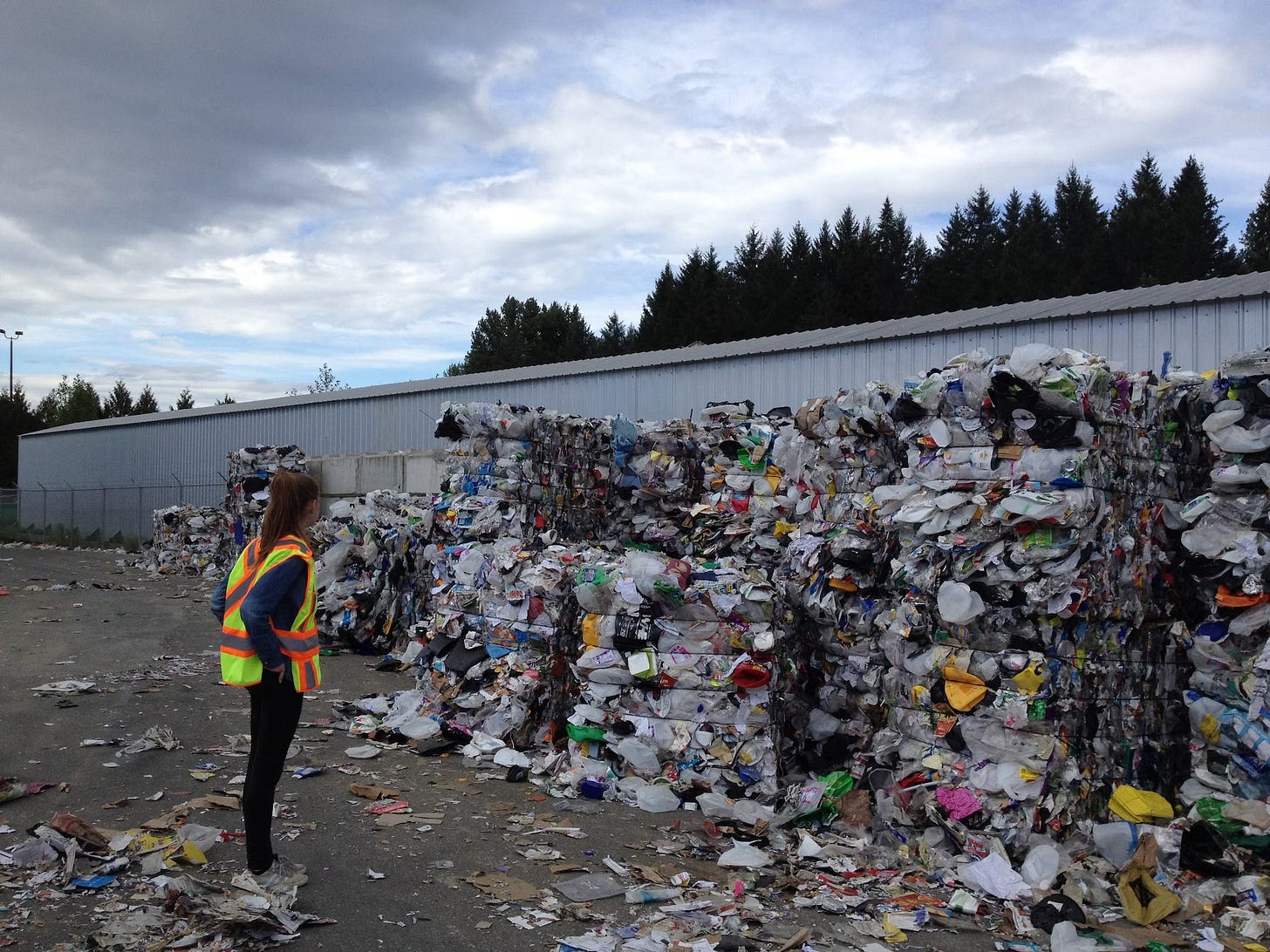
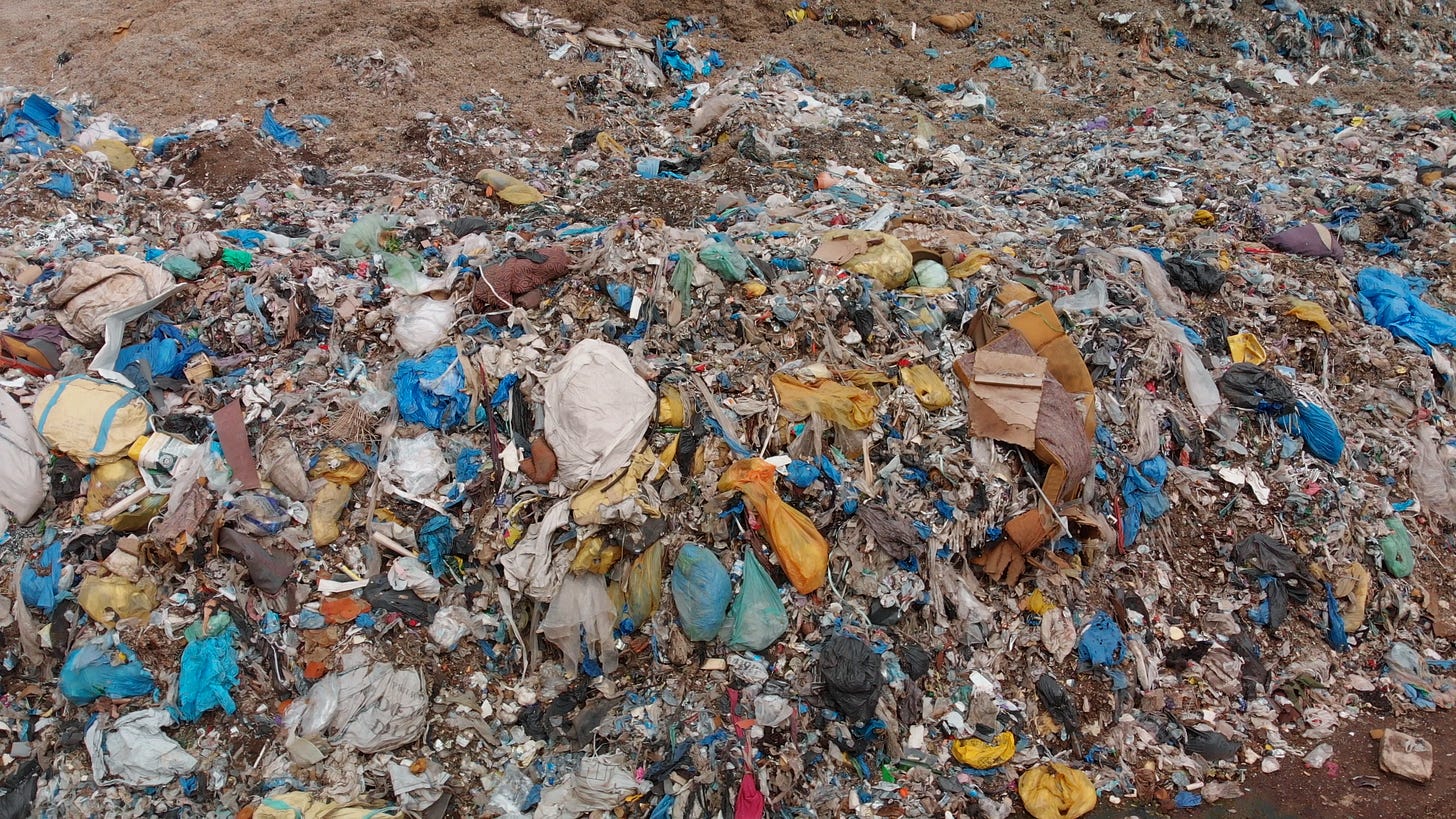
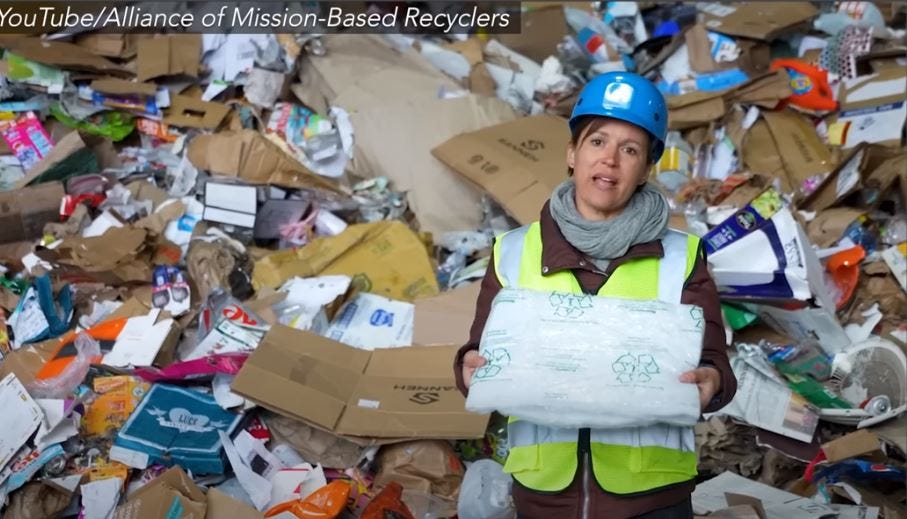

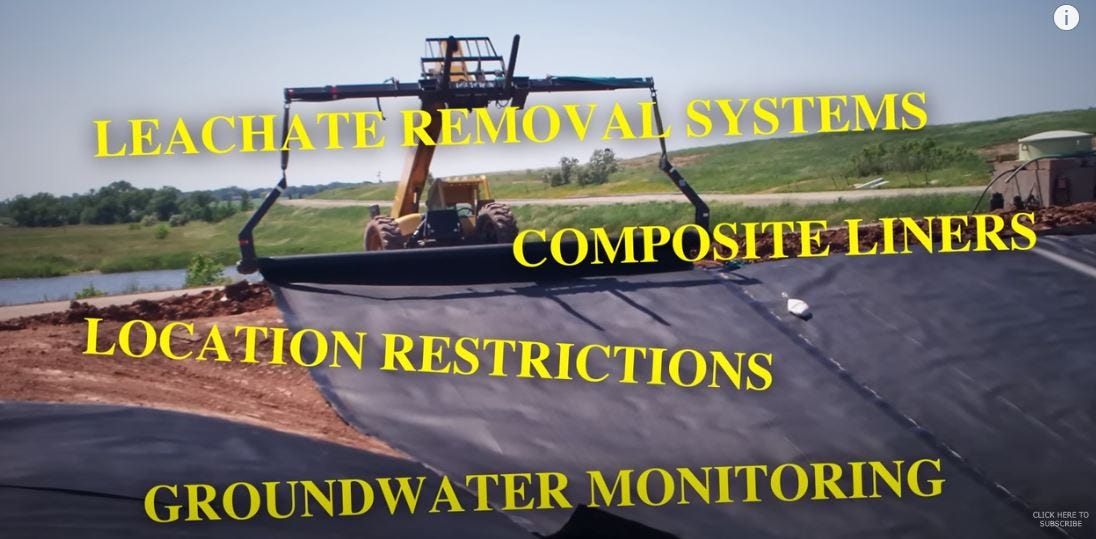
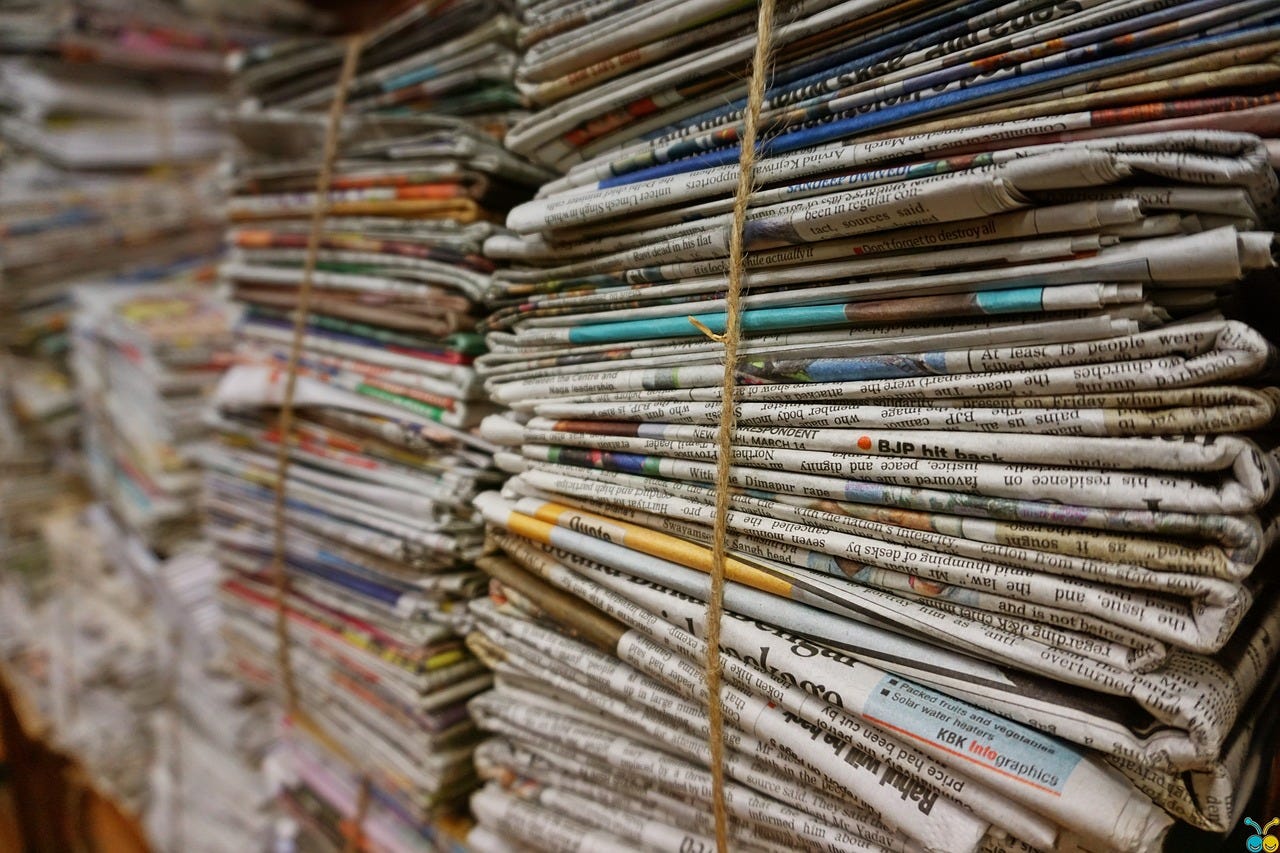
I like the concept of repurposing, where you make something different out of a disposable item. And of course composting is the best form of repurposing!